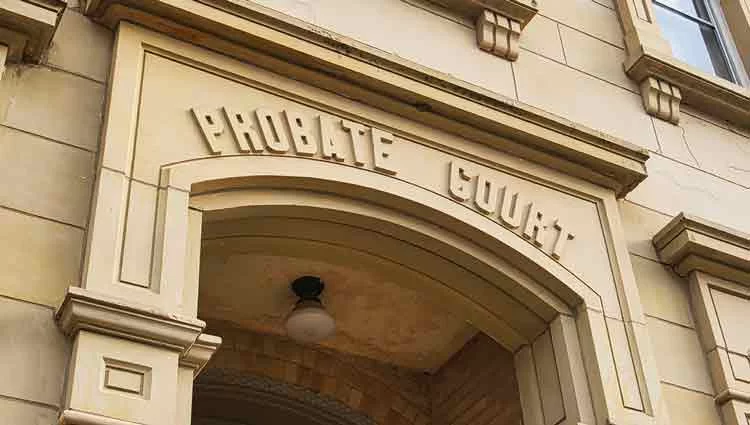
- Understanding-the-probate-court-process
- Probate-court-steps-and-procedures
- Common-challenges-in-probate-process
- How-professional-legal-help-can-assist
Understanding the Probate Court Process
The probate court process is a legal procedure that occurs after someone passes away, involving the validation and administration of their estate. At its core, probate ensures that the deceased person’s debts are paid, and their remaining assets are properly distributed to heirs or beneficiaries according to the will or state law if no will exists. Understanding the probate court process is essential because it can be complex, lengthy, and often emotionally charged for families navigating the loss.
Probate involves multiple steps that the court oversees, including verifying the will’s authenticity, appointing an executor or personal representative, inventorying assets, paying debts and taxes, and finally distributing property. These steps must be carefully followed to avoid disputes and legal complications. This process can vary by jurisdiction but generally follows similar principles nationwide.
The purpose and importance of probate
While some people view probate as merely a bureaucratic hurdle, it serves crucial functions. Probate helps protect creditors by ensuring debts are settled and provides legal clarity for heirs, preventing future conflicts. It also offers transparency and accountability in managing the deceased’s estate, which is especially important when large sums or complex assets are involved.
Why many find probate confusing
One reason probate can feel daunting is the technical legal language and the multiple deadlines involved. Without clear guidance, executors might make mistakes that cause delays or unintended legal exposure. This is why a detailed understanding of the probate court process is invaluable for anyone facing estate administration duties.
Probate Court Steps and Procedures
Breaking down the probate court process into clear, manageable steps helps demystify what often seems overwhelming.
1. Filing the petition and validating the will
The first official step involves filing a petition with the probate court to open the probate case. This petition usually includes submitting the deceased’s will if one exists. The court will then validate the will’s authenticity, a critical process called “probate.” If no will is found, the estate is handled through intestate succession laws, which determine heirs based on family relationships.
2. Appointment of executor or personal representative
The court formally appoints the executor named in the will or assigns a personal representative if no will exists. This person has the legal authority to manage the estate, including collecting assets, paying debts, and representing the estate in court.
3. Inventory and appraisal of assets
The executor must compile a detailed inventory of the deceased’s assets, such as real estate, bank accounts, investments, and personal property. Often, professional appraisals are necessary to establish the fair market value of these items for tax and distribution purposes.
4. Notification of creditors and payment of debts
Creditors are formally notified of the probate proceeding so they can make claims for any debts owed. The executor is responsible for paying these debts from the estate’s funds before any distributions to heirs.
5. Distribution of remaining assets
Once debts and taxes are cleared, the executor distributes the remaining property to beneficiaries according to the will or state law. This step officially transfers ownership and closes the probate case.
Common Challenges in Probate Process
While the probate court process appears straightforward on paper, many families encounter challenges that complicate matters significantly.
Disputes over will validity and inheritance
It’s not uncommon for relatives to contest a will’s validity, claiming undue influence or questioning the deceased’s mental capacity when signing. These disputes can lead to lengthy court battles that delay probate and increase costs.
Delays due to missing or complex assets
Sometimes assets are difficult to locate or are held in complicated forms like trusts or joint ownership. Executors must navigate these complexities carefully to avoid legal pitfalls.
Tax and legal compliance issues
Properly filing estate tax returns and complying with state laws requires detailed knowledge. Mistakes can result in penalties or audits, further complicating the estate administration.
Emotional strain and burden on executors
Executors often handle probate while grieving, which can be emotionally exhausting. Without clear guidance, the process can feel overwhelming, impacting decision-making and family relationships.
How Professional Legal Help Can Assist
Given the probate process’s complexity, seeking professional legal support can make a significant difference. Experienced probate attorneys guide executors through every step, ensuring compliance with court rules and protecting estate interests.
Expert guidance reduces errors and delays
Professionals understand procedural requirements and deadlines, reducing the risk of costly mistakes. They also help gather and organize estate documents efficiently, speeding up the probate timeline.
Managing disputes and difficult family dynamics
Probate lawyers act as neutral facilitators in contentious situations, helping mediate disputes or representing the estate in litigation if necessary.
Personalized advice for unique estates
Every estate is different, and legal experts tailor their approach to suit the situation—whether dealing with business assets, trusts, or tax complexities. This personalized service ensures smoother estate administration.
For those facing probate, ESPLawyers offers reliable, practical legal assistance to help you navigate the probate court process confidently. Their expertise can save time, reduce stress, and ensure your loved one’s wishes are honored properly.








